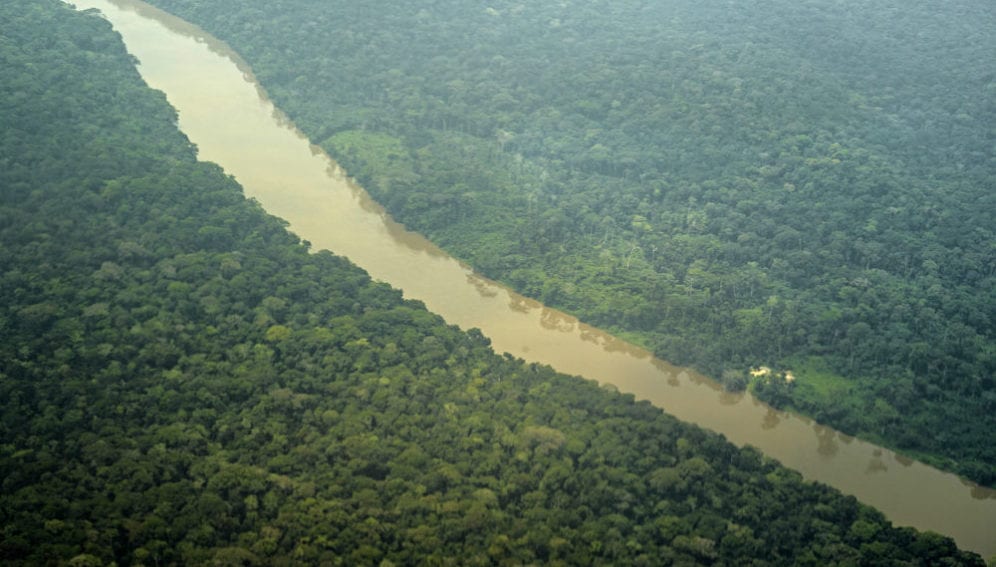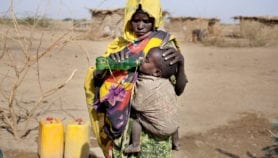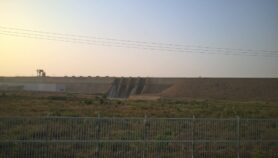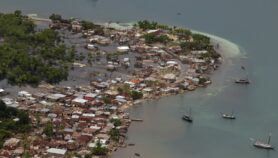By: Baraka Rateng’
Send to a friend
The details you provide on this page will not be used to send unsolicited email, and will not be sold to a 3rd party. See privacy policy.
Despite the contribution of forests to water sustainability, scholars and researchers have rarely studied the linkages involving forests, climate change and water in Africa, a report says.
According to the report, about seven billion humans currently occupying the earth are competing with more than three trillion trees for water, thus making a need to address
forests-water-people-climate links crucial.
The report, which was released during the United Nations High-Level Political Forum on Sustainable Development in New York, United Sates, last month ((10 July), adds that forests form a buffer against a looming global water crisis.
The report is a review of about 1,000 peer-reviewed published in the last ten years, with a focus on way forests interact with climate change in influencing water flows relevant for the Sustainable Development Goals, and the options to better manage forests for preventing water scarcity.
“Water issues cannot be understood without vegetation-climate interactions. Climate effects cannot be understood without a focus on water.”
Meine van Noordwijk, World Agroforestry Centre
Meine van Noordwijk, a co-editor of the report and an agroforestry expert at the World Agroforestry Centre, Indonesia, tells SciDev.Net that in Africa most analyses tend to focus on the watershed — a land area that separates waters flowing to different rivers, basins, or seas.
“Forest soils’ role in buffering water flows relative to incoming rainfall is well known,” says van Noordwijk. “It helps to reduce flood intensity as well as avoid droughts within the watershed.”
The report, which was generated by more than 50 scientists from 20 countries, was published by Austria-headquartered International Union of Forest Research Organizations.
Africa-specific literature includes studies from South Africa, with active forest management for optimised river flows, the Congo and Nile basin, studies in East Africa and the West African forest-savanna-Sahel gradient with its parklands.
According to van Noordwijk, it is important to replicate the study at more regional scale, involving more national scientists and policymakers.
The current forest-climate discourse and policies, he says, are largely on carbon, while the water aspects may well be more directly important for African lives.
“Water issues cannot be understood without vegetation-climate interactions. Climate effects cannot be understood without a focus on water,” he says.
Effective international cooperation is needed to get more systematic study of cross-border issues such as rainfall recycling in Africa.
If no action is taken by policymakers, rainfall in recycling-dependent regions, such as Ethiopia and Sahel will be adversely impacted, affecting tens of millions of farming families, van Noordwijk cautions.
George Okoye Krhoda, an associate professor of geography and environmental studies at Kenya’s University of Nairobi, says that the main drivers of water scarcity in Sub-Saharan Africa are growing population, rapid social and economic development and climate change.
“One quarter of Africa’s urban population does not have access to clean water supply while one third of rural population does have access to fairly polluted water supply,” explains Krhoda, who is also the managing director at Kenya-based Research on Environment and Development Consultants Ltd.
Water-forests relationship, he says, is replete with myths, misunderstanding, misinformation and misinterpretation of data. It is necessary to study deforestation impacts and their links to water availability in Africa to provide long-term monitoring data.
“There are governance challenges, lack of capacity and political interference – the latter especially in water issues.”
This piece was produced by SciDev.Net’s Sub-Saharan Africa English desk.
References
Forest and water on a changing planet: vulnerability, adaptation and governance opportunities. A global assessment report (International Union of Forest Research Organizations, 2018)














